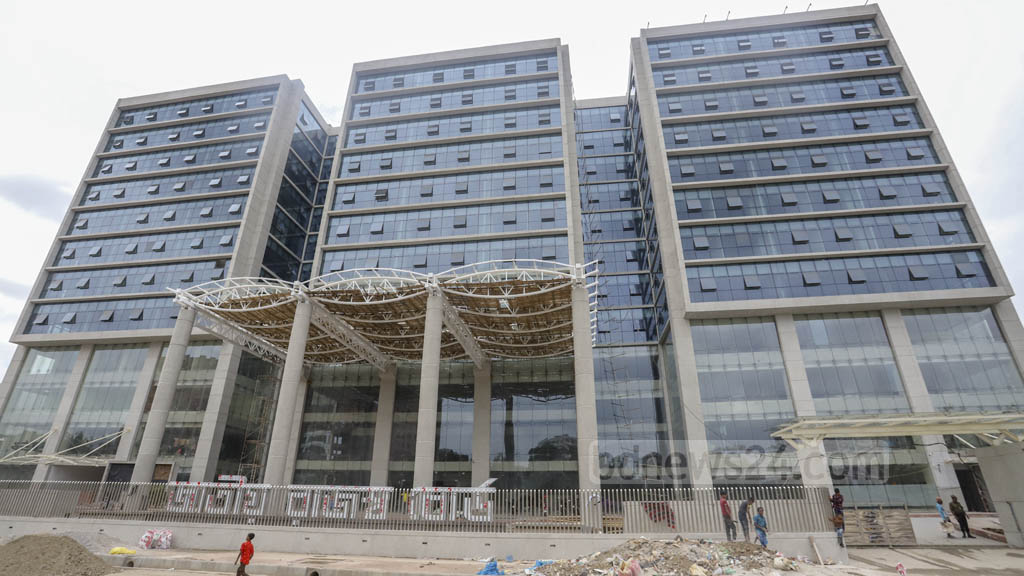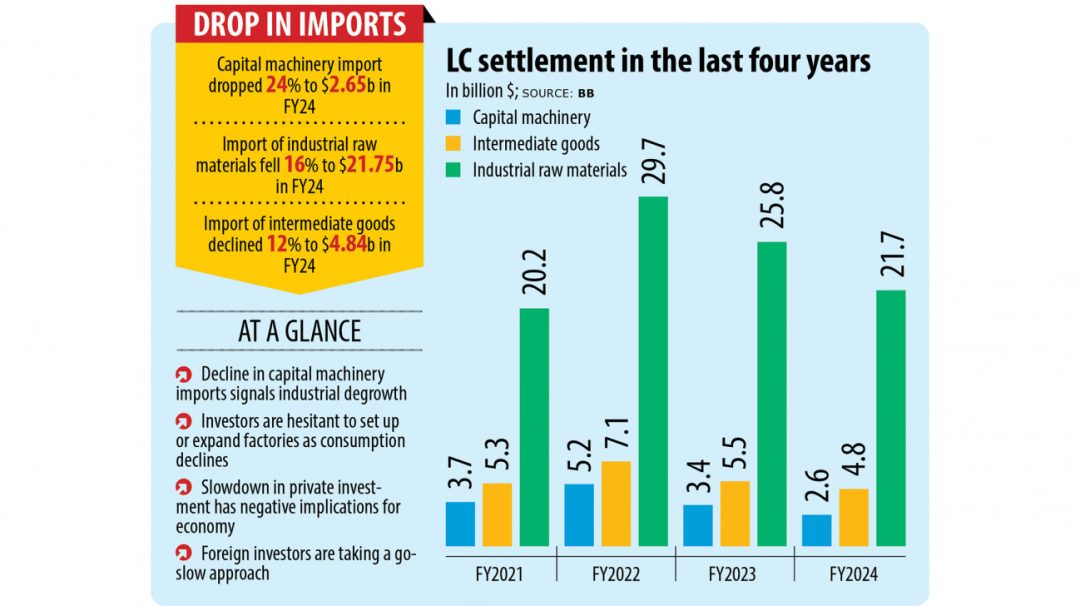Business disruptions caused by political unrest in July and the deterioration of law and order during the August power transition have kept revenue growth negative for four months.

According to data released on Monday, the National Board of Revenue, or NBR, collected 1.03 percent less revenue in the first four months of FY 2024-25 (July-October) compared with the same period last year.
This is in stark contrast to the 14.36 percent growth recorded during the same period in the previous fiscal year.
In November, data showed that revenue collection in the July-September quarter fell by 6 percent year-on-year.
However, a slight improvement in October eased the negative growth trajectory.
NBR’s data shows it collected Tk 1.01 trillion in revenue during July-October this fiscal year, compared with Tk 1.02 trillion in the same period of the previous year—a shortfall of Tk 10 billion or 1.03 percent.
August marked the worst month, as the nation experienced a three-day power vacuum following the government’s exit.
This unprecedented period was marked by attacks on police, leaving law-enforcing agencies inactive.
Businesses refrained from customs clearance, transport, and production, leading to a 14.3 percent decline in revenue collection compared with August last year.
July also saw unrest, including curfews and internet blackouts, disrupting import-export activities for nearly ten days.
Consequently, revenue collection in July dropped by 7.12 percent year-on-year.
However, business activities began to stabilise in September, leading to a modest 2.03 percent growth in revenue collection that month.
Despite signs of recovery, October saw slower growth due to inflationary pressures.
With inflation reducing consumer spending, value-added tax collection dropped by almost 5 percent, resulting in overall revenue growth of just 0.84 percent for the month.
Point-to-point inflation, which had briefly fallen below double digits in September, surged again in October, reaching 10.87 percent—the second-highest rate in this fiscal year.
The economic slowdown, driven by political instability, floods, and power transitions, continues to weigh heavily on import, export, and production, extending its impact on revenue collection.


